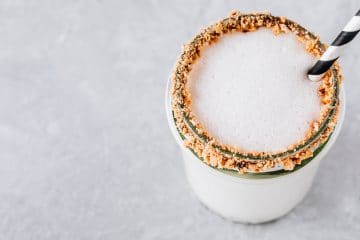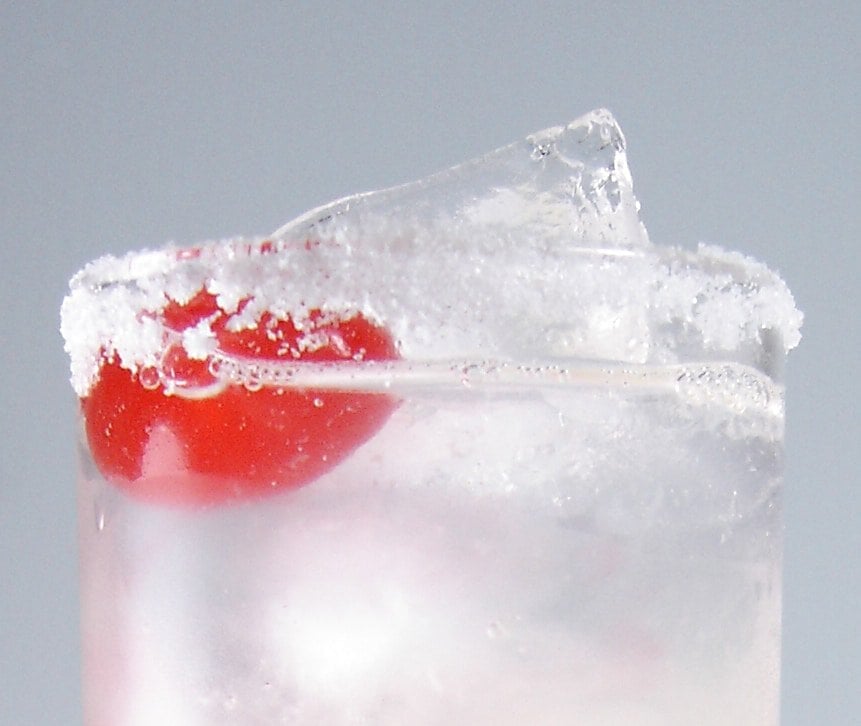There, I said it. Actually, it was pointed out to me by SeanMike on Twitter that I have been saying this since 2010 at the first Portland Cocktail week. Before I said it, Rick Dobbs prophesied it back in 2008. Let’s say the writing was on the wall and today the coroner is just about to sign the death certificate. Does this mean cocktail blogs are finished? No, but the golden days are gone. “What happened?” you may ask. Let me explain and it is more complex than simple apathy.
I’ve been sitting on this post for over a year. Standing on a soapbox, proclaiming the end of something, isn’t my style, at least not sober. However, there has been some discussion on Twitter and other mediums, like personal conversations (imagine that) which have convinced me that a post-mortem needs to be completed.
Blogging isn’t really dead, certain categories do very well like technology sites, however, the cocktail blog is dead or not near as influential as they once were. There are a number of valid reasons for this, but first some inspiration for this post.
In the past few years, the term “blogger” has gone from descriptive to derogatory. If you’ve watched the movie Contagion (2011), the villain isn’t the virus, it’s a blogger. At one point in the movie, a character defines a blog as “graffiti with punctuation”. Matthew Rowley (Whiskey Forge) described being introduced as a blogger at an event, only to receive looks of pity. Ouch. Whenever you want to throw a writer under the bus, say this: “You are just a blogger.”
Angus Winchester, in a Twitter discussion about a certain spirit, stated to someone “I am not surprised you are a fan as they gave it to you free. And you are a blogger.” The implications of such a statement are that bloggers are in a subservient relationship with spirit companies and merely post glowing reviews for free samples.
Twitter is not the proper medium for intelligent debate and Angus is a decent guy so I’ll cut him some slack. Angus did offer a sort of Romney-esque mea culpa with this Twitter broadcast: “To Bloggers everywhere. I don’t think you all suck by any means but there are far more bad ones than good. More so than traditional media.” I wonder if this post puts me in the sucks column? Maybe I was already there, who knows. The point is when people make blanket statements like “you are just a blogger” it casts doubt on the credibility of all bloggers.
Do most cocktail blogs suck? I don’t think so. Personally, I feel that all of the “low hanging fruit” has been plucked and discussed ad nauseam. How many times can we talk about the Manhattan cocktail or other mainstream cocktails that contains three ingredients and keep it interesting? The reality is we can’t, so bloggers always need to find new and interesting things to talk about. New bloggers make the mistake of thinking they are joining an ongoing conversation, adding their opinion, but those discussions have long ago reached a conclusion.
As topics get more in-depth, we hit a threshold where people can’t justify the amount of time required to research and write a post. It also means that if you truly love this topic, you might as well ditch the blog and write professionally (i.e. get a pay cheque). That’s what Paul Clarke did.
If there was a way to monetize cocktail blogs they might be more successful, however, due to the nature of the topic (alcohol) there are advertising barriers (DISCUS) that other topics don’t have to deal with. From experience, I can say it is extremely difficult to get decent advertising income from a cocktail blog. Aside from advertising laws, most spirit companies can’t be bothered to put money into blogs because they want big numbers (millions of visitors) and hardcore analytics. This cocktail community isn’t nearly that big and delving into analytical visitor data for a couple thousand visitors a day, or less isn’t worth the ad revenue. To generate those big numbers requires a site that is basically a giant drinks database and there are plenty of those already.
It should be noted that most of the big brands are well aware of the power of a well-written blog and will often ply bloggers with free booze to unzip the posting zipper in an effort to get publicity. Then there’s the endless stream of press releases, the vast majority irrelevant to our community. And really, this high-end cocktail community is very small compared to other online communities.
Then bloggers have to deal with pandas, Google Panda that is.
Google Panda was a major update to the Google search algorithm designed to enhance search results by placing quality content higher in the rankings. Sounds nice, but Google’s digital idea of quality lacks refinement when it comes to drinks. When Panda rolled out, Art of Drink got slaughtered. Where the site previously ranked in the top 10 for many cocktail search terms, like the Margarita, it now sits somewhere in the basement, never to be seen by impatient searchers again.
At Art of Drink’s peak, it was getting about 5000 visitors per day or about 250,000 pageviews per month. Today it gets about a quarter of that. If you search for “Margarita Cocktail” the first page of results in Google shows About.com cocktails 4 times (your search may vary depending on your Google data centre). That’s right, About.com gets 4 out of 10 of the top results. Sounds odd, but it is not. Google reconfigured their search results for profit, and About.com uses a lot of Google ads. There is nothing inherently wrong with this, most bartenders will happily give their best customers better service because those are the people who pay the bills, ditto for Google. For bloggers, who are almost always independent to start, we rank very low no matter the quality of our content just because we lack size.
It should also be noted that one of Google’s quality indicators is back-links. If I write an article and you put a link to that article on your website that is a back-link. At one time they were abundant, but as the cocktail community shrank, so did the back-links. Links have also become a type of Internet currency and nobody likes to give away something for free when they can barter for a reciprocal link. Anyone who has a blog has probably been solicited for back-links. Me, I just spread the love freely. Have a link Rocky, Dr. Bamboo and Rated R Cocktails.
Obviously, linking could also be a quality issue (i.e. the posts on Art of Drink, or any blog for that matter, don’t warrant a back-link because they are low quality). Without back-links it is almost impossible to rank highly in Google which means few people actually read those articles. For new bloggers, this is a huge challenge as the cocktail community isn’t really involved with blogs anymore.
Another Google quality indicator would be social media. A post that gets many comments, retweets or Facebook Likes might rank higher in the search results. Again, retweets are hard to come-by unless explicitly requested. There are bartending personalities that do generate a social media response, like Jeffrey Morgenthaler but overall it is hit and miss.
Having a weak online cocktail community impedes the growth of our industry (i.e. quality drinks) creating a type of hipster bubble. The reason is that people searching online for a drink recipe will more than likely find the ones we’ve been trying to kick to the curb and replace with better quality ones.
Back in 2008, I could publish a post and within 12 hours have over 800 people view the article. Now I’m lucky if 250 people read the article in 72 hours. This may actually be a sign of success. Instead of people reading about these once-mythical cocktail creations, they may very well be enjoying them at a nearby bar. If that is the case, and there is evidence to support this conclusion, then I’d be very happy as vicarious existence can never beat the real experience.
I’ll continue to write on Art of Drink, as I’m the proverbial bagholder when it comes to trends. I’m the guy who is infinitely optimistic in the face of overwhelming odds. First, there was that Corel stock thing, then the whole Movable Type blog platform, and then there is my fondness for Blackberry devices and I love Olympus cameras. I’m like the grim reaper of technology.
I can understand why so many bloggers have retired. Much of the low hanging fruit has been plucked off the blogging tree and to retain a readership one must constantly raise the bar. After the easy posts, it gradually gets harder to put together an interesting article and there are only so many times you can write a spirit review that states “hints of oak and vanilla” before you become sick of yourself. Then there is the fact that you offer your writing for free but still have to deal with those annoying Internet trolls.
For those that don’t have aspirations to become a writer, they can now socialize in a bar with talented bartenders instead of staring at a computer screen visualizing great cocktails. It’s a lot more fun to drink one.
I have received advice from the alumni of the cocktail community throughout my blogging tenure which keeps me motivated to write, albeit at a diminished level. To paraphrase, they’ve told me to “do what I do and ignore everything else”. Good advice. I have two young kids who take up a lot of my time, so writing has become much harder for me, but I’ll continue to write because I enjoy it.
I can say this, the cocktail topic is one where bloggers, book authors (Beachbum Berry, David Wondrich, Ted Haigh, Wayne Curtis, gaz regan, Dale Degroff, Jared Brown and Anistatia Miller and many others), bar owners / bartenders (Audrey Saunders, Sasha Petraske, Tony Conigliaro, Jamie Boudreau, Jeffrey Morgenthaler, etc.) as well as spirit producers / distillers / ambassadors (e.g. Eric Seed, G’Vine Gin, Simon Ford, Philip Duff etc.), magazines like Imbibe and Mixology and events like Tales of the Cocktail, actually changed the world of drinks. Before these people, the cocktail world was pretty bleak. There is still a lot of work to do, but this group of people has worked side-by-side to make drinks more enjoyable. Sure, it’s not world peace, but they have produced millions of smiles and an equal amount of laughs, which is a step in the right direction.
Cocktail blogging may be dead, but it did effect change which can be seen in bars all over the world. Long live the cocktail blog!




